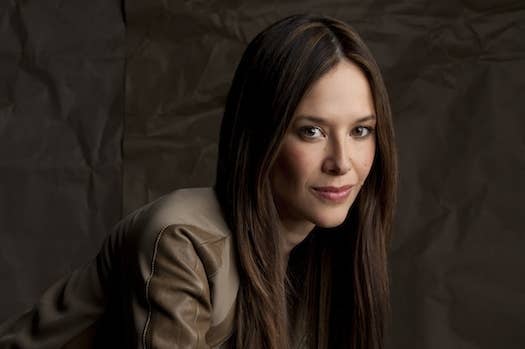Ubisoft embracing indie-style projects at big studios
Jade Raymond talks about how Ubisoft Toronto is looking to leverage industry best practices, including indie-style development
Last year, Ubisoft Montreal creative director Patrick Plourde discussed how he pitched a small project like Child of Light within a AAA games development studio. Getting a massive studio within a major publisher to sign off on a small project isn't the easiest thing to do, but the small games approach appears to be catching on within other Ubisoft studios. At a special GDC dinner last week, Jade Raymond, managing director at Ubisoft Toronto, discussed how her studio has looked to the indie scene in Toronto for inspiration.
Ubisoft Toronto currently has five projects in motion, with two of them being collaborative efforts amongst multiple Ubisoft studios. The other three will be smaller-scale projects, and Raymond said that's a good thing as it's giving her studio a chance to experiment creatively.
"They are smaller [projects]. One will be smaller always. One of them is only a 20-person team. So don't expect that out of Ubisoft Toronto and the five projects that you'll see five new Assassin's Creeds. I think that's great because when you look at the industry these days the products like Assassin's Creed are still doing well, we can have them every year and innovate and they'll grow, but there are also other interesting opportunities to explore and they can be done with smaller teams and you can keep some people really motivated because they want to have the experience of doing both things," she said.
Raymond continued, "I think it's a win-win if you can figure out a way to have the more indie-style development work within a bigger structure. I think that's an advantage we have in Toronto too, because there's a really great indie scene so it would be dumb of us not [to leverage that]. Lesley [Phord-Toy] is one of the producers at [Ubisoft] Toronto and is also the president of the IGDA in Toronto and really involved in the game development scene. Nathan [Vella] from Capybara comes and hangs out, and there's so much interesting stuff going on and we want to leverage that and take the best of what's going on in the industry in general."
"I do feel like we're in the age of self-expression. It's an age where everyone is an artist... it's a move to systemic games that allow you to play the way you want and you can share it..."
Jade Raymond
One of the themes that Raymond repeatedly touched upon during the dinner was that of ownership. Whether it's a small team that's given a chance to work on a smaller indie-style game or an entire studio that takes complete control of a particular aspect of a larger AAA game - like how Ubisoft Singapore did everything related to naval battles in Assassin's Creed 3 - that feeling of ownership and sense of pride yields better results. Quite frankly, it's a sign of good management, said Raymond.
"It's human nature but it's also how you create great games, like Singapore being able to say 'we did the naval parts and that's 100 percent us.' They wanted to bring it up a level. If they had been doing [a variety] of cinematics across the whole game they couldn't point to any one thing. Ideally you take a chunk and you let people own it," she noted.
And that ties into another theme: self-expression. While Ubisoft is proud to let its creative talent express itself, Raymond identified that self-expression is actually becoming more and more important for Ubisoft's audience. Increasingly, gaming experiences are about the players and how they express themselves rather than what the game developers want them to see.
"I do feel like we're in the age of self-expression. It's an age where everyone is an artist... and everyone wants to share. We see that evidenced in very simple products like Minecraft and it's about what I create... It's about what I think is great and what I'm sharing with people and what other people care about. In terms of games, really to me, it's a move to systemic games that allow you to play the way you want and you can share it... it's really games that facilitate that," Raymond said. "It's about, 'I had this experience and I was playing this way and this was what happened and this is my story.' That's the big trend."
When asked if that means that one of the five projects at Ubisoft Toronto might be in the vein of Sony's LittleBigPlanet, she responded, "I love LittleBigPlanet but that's the thing about the spectrum of creativity - I don't think it has to do with creating levels. There are so many ways in which you can be creative, so it's about 'this is my way of playing this thing and I can show you my experience.' It doesn't have to be creating levels; so I think in the same sense that Facebook expands to offer different levels of engagement you have to allow a different level of engagement for people. I do think it's important for people to have the ability to create things but that's still going to be three percent of the population that spends the time to learn and do that. But everyone else still wants to be creative so what's their avenue?"









